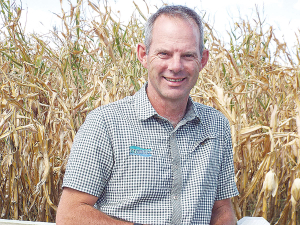Upper North Island Storms: Limited impact on dairy farms
For the most part, dairy farmers in the Waikato, Bay of Plenty, Tairawhiti and the Manawatu appear to have not been too badly affected by recent storms across the upper North Island.
 AgFirst director James Allen says budgeting for next season is going to be difficult because it’s hard to forecast what the payout might be.
AgFirst director James Allen says budgeting for next season is going to be difficult because it’s hard to forecast what the payout might be.
Cash flow budgeting is going to be critical for dairy farmers in the coming season.
That's the sage advice from AgFirst director and respected dairy advisor James Allen. He says budgeting for next season is going to be difficult because it's hard to forecast what the payout might be. He says it's a case of budgeting low, hoping for better, and that he wouldn't be budgeting mroe than $8/kgMS.
Allen says farmers have been pretty good at managing their costs and appear to have kept their cheque books locked away, as many machinery salespeople will attest to. He says one thing that has helped farmers this season has been the quite significant capital distribution by Fonterra of 50c/kgMS and some good dividends.
"So, from a cash flow perspecttive it assisted massively, and the other thing is the advance payments which have that assisted cash flow now. However, going forward for next season there will be no lift in the advance payments for some time,” he says.
Allen’s comments come at a time when there is what he describes as cautious optimism among dairy farmers. He says this season’s payout now is certainly stronger than it was at the start of the season – a definite positive.
“The challenge for everyone is that the interest rates are high, and they are going to remain high for at least another six to twelve months. For anyone with a high debt level, it’s pretty challenging out there, despite the fact we have got through this season with a lift in the payout and reasonable production,” he says.
In terms of the season, weather-wise it’s been a bit of a mixed bag and Allen says a lot depends on what region you are talking about.
He says the lower North Island and Northland have been dry with pasture covers and growth rates below average, but not at disastrous levels. He says many were expecting a significant El Nino season, but this didn’t eventuate.
“In the Waikato we have ended up with a pretty good summer with good grass growth levels, excellent maize yields and consequently good reserves of supplements, so here in the Waikato, things are looking really good,” he says.
But with relatively good conditions nationwide, Allen says the focus for dairy farmers now must be protecting the coming season.
“It’s about drying off at the appropriate time so that you are protecting your cow condition and covers for next season rather than rolling the dry spell into next season,” he says.
Allen says although there has been something of a lift in farmer optimism, the path ahead is challenging and he says the focus of farmers must be on planning for whatever might happen.
Fonterra’s impending exit from the Australian dairy industry is a major event but the story doesn’t change too much for farmers.
Expect greater collaboration between Massey University’s school of Agriculture and Environment and Ireland’s leading agriculture university, the University College of Dublin (UCD), in the future.
A partnership between Torere Macadamias Ltd and the Riddet Institute aims to unlock value from macadamia nuts while growing the next generation of Māori agribusiness researchers.
A new partnership between Dairy Women’s Network (DWN) and NZAgbiz aims to make evidence-based calf rearing practices accessible to all farm teams.
Despite some trying circumstances recently, the cherry season looks set to emerge on top of things.
Changed logos on shirts otherwise it will be business as usual when Fonterra’s consumer and related businesses are expected to change hands next month.
OPINION: Fonterra may be on the verge of selling its consumer business in New Zealand, but the co-operative is not…
OPINION: What does the birth rate in China have to do with stock trading? Just ask a2 Milk Company.